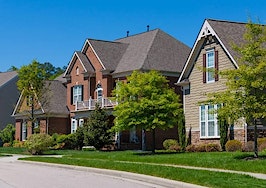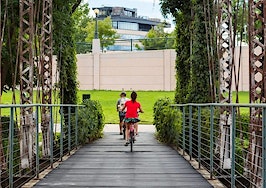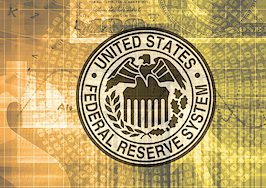Takeaways:
- With home prices rising steadily since 2013, homes have become less affordable for some buyers — and therefore, less sustainable, says CoreLogic in its Market Condition Indicators report for the second quarter.
- As home prices have continued to rise, the gap between home prices and sustainable values has narrowed to 3.6 percent below the long-run sustainable level — and could shrink even further to 1.5 percent by 2017, according to CoreLogic’s forecast.
- The trend is especially prevalent in Texas, where home prices in five local markets are well above their historical peak levels.
With home prices rising steadily since 2013, homes have become less affordable for some buyers — and, therefore, less sustainable, says CoreLogic in its Market Condition Indicators report for the second quarter.
It’s been a wild few years in terms of housing price sustainability, noted CoreLogic, which has historical indicators for many markets dating back to 1976.
During the housing bubble years of 2005 to 2007, home prices were more than 10 percent above the long-run sustainable levels. But when the bubble burst, home prices tumbled more than 10 percent below sustainable prices.
CoreLogic defines an overvalued or undervalued market as having a current Home Price Index of 10 percent above or below the long-term fundamental value for that market.

Now, as home prices have continued to rise, the gap between home prices and sustainable values has narrowed to 3.6 percent below the long-run sustainable level — and could shrink even further to 1.5 percent by 2017, according to CoreLogic’s forecast.
Based on the company’s data through June, the number of local markets where homes are overvalued has doubled since the end of the first quarter. CoreLogic named 14 markets in particular that are overvalued.
The trend is especially prevalent in Texas, where home prices in five local markets are well above their historical peak levels partly due to strong job growth and to the absence of the severe boom-bust housing cycle seen elsewhere.
“Between 2006 and 2014, an oil and gas boom had fueled job and population growth in some markets, pushing home prices well above their sustainable levels in these markets. Since last year, geopolitical events have shifted in favor of excess oil supply, possibly exerting further downward pressure on oil prices in the next few years and impacting some of these Texas markets,” CoreLogic said.
Leading the list of 14 overvalued markets is Austin-Round Rock, where the gap between home prices and sustainability is 42.3 percent. That market is followed by Houston-The Woodlands-Sugar Land, where the gap is 25.4 percent.
Other Texas markets making the list are Dallas-Plano-Irving (14 percent); San Antonio-New Braunfels (12.4 percent); and Fort Worth-Arlington (10.2 percent).
The areas that have become overvalued since last quarter are:
- Cape Coral, Florida
- Knoxville and Nashville-Davidson-Murfreesboro-Franklin, Tennessee
- Philadelphia
- Silver Spring-Frederick-Rockville, Maryland
- Denver-Aurora-Lakewood, Colorado








